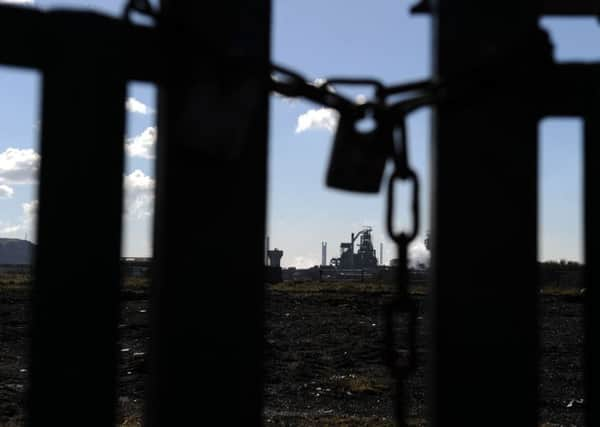Jayne Dowle: Time the nation forged a new kind of British steel


In those days, this massive plant was run by British Steel. Today it’s known as Tata Specialist Steels. When dad joined, as a 15-year-old apprentice, it was owned by a company established in the 1840s by umbrella-maker Samuel Fox.
Its ownership has passed from private to public to private again. Will Stocksbridge and other steel plants under threat be nationalised once more? Who knows, but nationalisation should not be the only option on the agenda.
Advertisement
Hide AdAdvertisement
Hide AdWhat all concerned – politicians, steel industry owners and trade unions – should really be asking is not what a new British Steel would do to us, but what steel could do for Britain.
If this industry is to have a sustainable future, it requires serious analysis of how practices can be streamlined and adapted to meet current and future demands.
Dad’s participation in the strife of the early 1980s made me wary of government Ministers and industry figures out of touch with ordinary workers. In later years, when I had achieved some political balance, it also made me question some of the operating practices of nationalised industries, especially when the South Yorkshire coal industry collapsed.
That is all ancient history now. The challenge before us in 2016 is more complex than anyone ever imagined back then. It involves a multi-faceted, multi-national company, Tata, deciding to sell off its British operation, with thousands of potential job losses in this region, South Wales and the North East.
Advertisement
Hide AdAdvertisement
Hide AdTherefore, the situation demands a new response from everyone involved, and a lot more forethought than Conservative governments gave to the mining industry. It is in no one’s interests to add to the unemployment figures and the out-of-work benefits bill.
Here, then, is a chance to find a new way of doing business. Those who regard saving steel as an old-fashioned party political battle are missing an opportunity for true consensus, and fuelling a situation in which we stand to lose both an industry and a skilled workforce.
And then there are the communities which will face an uncertain future, devastated by the loss of their staple employer. You only have to see what has happened in our former pit villages to recognise the knock-on effect on local businesses, shops and services.
There is also the matter of aspiration and ambition. When youngsters see opportunities swept away from them on the whim of global economics, they lose faith in their own futures. Or they leave.
Advertisement
Hide AdAdvertisement
Hide AdLet’s not get carried away with emotion, though. We have had too much already; first the Chancellor appeared to back some form of nationalisation, then David Cameron says he is not in favour, and to add to the clamour, various individuals with “Business” in their Ministerial job title are shouting at odds.
Shadow Chancellor John McDonnell urges swift action, and rightly so. He wants the Government to “get a grip” and come to Parliament with a clear plan that can be backed on a cross-party basis.
This might involve nationalisation, even of a temporary or partial nature as Labour did for banking, but this cannot be the only course. There is no point any government simply shoring up an industry producing a material nobody wants. There is over-capacity in the global market, a collapse in prices, and the Chinese are in trouble for dumping the surplus steel they cannot sell.
Neither is there any point in left-wingers demanding nationalisation as if was a right. Done hastily, this would only lead to huge debts and job losses in the end.
Advertisement
Hide AdAdvertisement
Hide AdI would like the Prime Minister to stand back, take a deep breath and quickly gather together enough experts to come up with a viable list of ways in which the country and steel manufacture could enjoy a mutually-beneficial relationship. This would be an entirely new way of saving an industry, holistic rather than antagonistic.
How, then, could our own steel benefit us as a country? Well, there is our thriving construction sector for a start. All efforts should be made to connect our own steel industry with the companies which need frames and beams for building projects; schools, colleges, retail and office parks.
Then there is transport; what of the new railway carriages we were promised in our region only recently, what of the contracts for HS2 and HS3? Will British-based companies be the first call, or are tenders being put out abroad? And let’s think of the future. We hear of the millions being investing in training young people in STEM (science, technology, engineering and maths) subjects. What better place for their further training and apprenticeship than a flexible, forward-thinking steel industry?
If our Prime Minister can pull all this off, he will have succeeded in something quite unique – making cross-political consensus work for the good of the nation. And in doing so, he will go down in history for forging a brand-new kind of British steel.